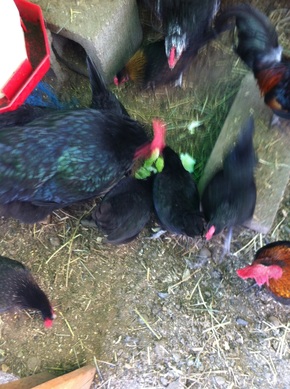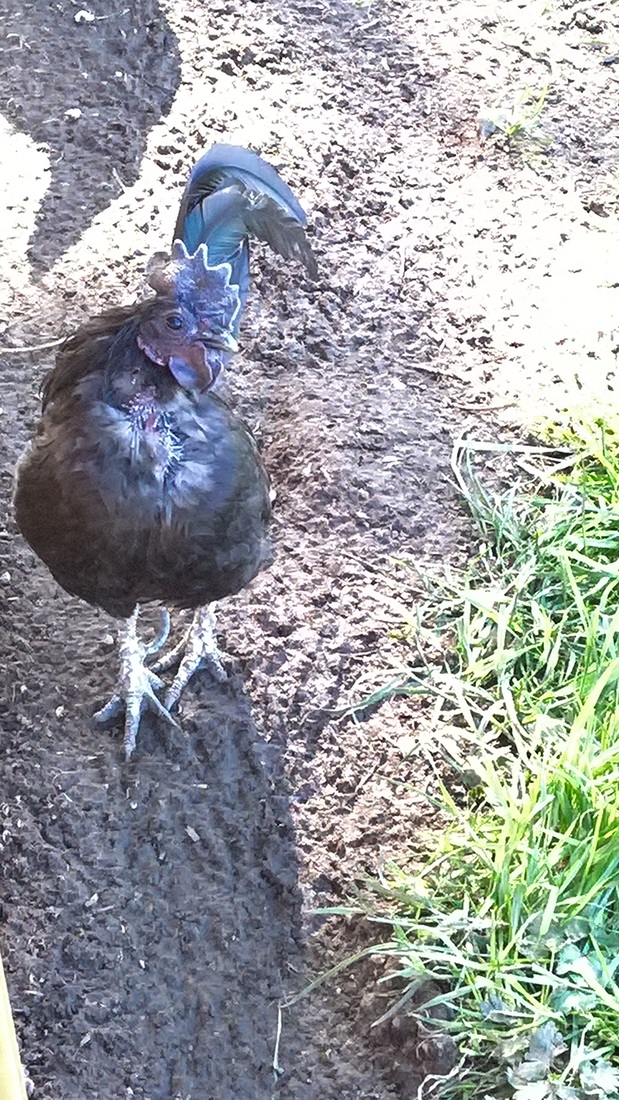Ten Essential Chicken Feeding Facts
|
Proper nutrition is an important key to good health. Implementing these simple steps will help keep your flock flourishing.
1. Full-grown chickens will consume about 1.5 pounds of chicken feed each week. However, a chick may consume one pound every week to support its rapid growth.
2. An average laying hen will consume 2 cups of water each day. Offer fresh, clean water on a daily basis to help your girls keep up with their daily nutrition needs. 3. Scratch grains should be used only as a treat. Scratch grains should comprise no more than 10% of a chicken's diet and feeding more will reduce the amount of protein consumed on a daily basis. Protein is an essential part of growth and egg production. Layer feeds of at least 16% to 18% protein are needed to maintain a healthy flock. 4. Wheat midds??? Chances are if you looking look at the ingredients in your poultry feed you will see things like soybean meal, canola meal, corn and wehat midds. Wheat midds, short for middlings come from the wheat milling process. They are often used in animal feed and are considered a good source of energy, protein and fiber. Learn more about chicken feeds here. 5. Chicks should be fed chick starter for first 16 weeks of their lives. Typically chicks are about a week or two old when you purchase them, so plan on feeding them chick starter, so plan to feed them Chick Starter, which has a higher protein content, during the balance of that time. 6. Grit (small pebbles) is sometimes over looked, particularly in rocky areas with a lot of limestone with smaller rocks, but if you have any doubts, offer your birds some grit. Birds do not have teeth and this grit goes into the chicken's gizzard and helps it digest food. Free-choice grit should be fed starting at 6 weeks. 7. Egg shells are composed of 97% calcium carbonate and this underscores the importance of ensuring your hens are getting enough calcium. Oyster shells should be offered to your chickens free choice. Again, this is sometimes overlooked in areas with a lot of calcium in the soil and rocks, but laying hens require 3 times the calcium of non-laying hens.Also remember to make sure to use layer feeds that contain adequate calcium. 8. Prebiotics and probiotics will provide good microbial activty in a chicken's gut. Select supplements with beneficial bacteria to support good digestion. 9. Like all animals, chickens' digestive systems can occasionally become upset. Common disruptions may be due to changes in diet, extreme temperatures, dirty of lack of water, molting, transportation or hanlding, using antibiotics or even stress created by things such as the sound of lawn mowers. 10. Remember, chicken waste makes excellent garden fertilizer and after being aged can be used in gardens. Learn more about composting here. |



 RSS Feed
RSS Feed
